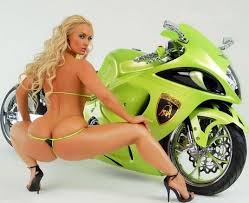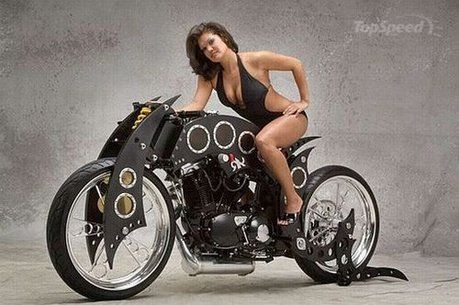skip to main |
skip to sidebar
|
|
 |
 |
 |
 |
 |
|
|
|
Best Ducati Motorcycle 1198

Best Ducati Motorcycle 1198 Red

Ducati 916 Biposto
His insatiable thirst for life is only surpassed by his monthly fuel
bill. Whether rocketing on land, flying through the air, or jumping the
seas, our Associate Editor does it all and has the scars to prove it.
Italian motorcycle manufacturer, 2013 Ducati Monster 796 First Ride
has released its first new model of the season: the 2011 Ducati
Monster 796. This mid-range street bike fills the void between the
entry-level personality of the Monster 696 and the advanced road
performance of the Monster 1100. With a base price of $9995, the 796 is
a sensible choice for motorcyclists looking for an amusing and
easy-to-maneuver motorbike that’s ideal for jaunting in-or-around the
city.
The
beauty of the Monster line is that the basic architecture of the
bikes, including the chassis, air/oil-cooled V-Twin engine
configuration, and sleek minimalist body panels are shared between
models. However a closer look reveals there are some key differences
between this one and its siblings.
The primary difference that
distinguishes the mid-level Monster is its use of a 4-valve, 803cc
V-Twin, identical to the unit employed in the Hypermotard 796 street
bike. Compared to the other Monsters this engine is in a higher state
of tune, employing an 11.1:1 compression ratio (versus the Monster
696/1100’s 10.7:1 ratio) courtesy of pistons with a different crown
shape. Fuel is received from a 3.8-gallon fuel tank through 45mm
throttle bodies, each equipped with a single fuel-injector. Exhaust is
piped through a 2-1-2 stainless-steel configuration that terminates
with twin shorty-style under-tail mufflers. Each header pipe is fitted
with an oxygen sensor which ensures optimum engine running conditions.
A
six-speed transmission and a hydraulically-operated APTC clutch
control the engine’s power through a chain drive. Furthermore the
clutch is bathed within the engine’s oil supply enhancing reliability
and reducing noise as compared to the racing-style ’dry’ clutches used
on the 1198 Superbike. The clutch also incorporates a slipper/back
torque limiting functionality which helps prevent the rear wheel
instability during downshifts at high rpm.
The engine is cradled
in a lipstick-red steel trellis frame. It attaches to a reworked
subframe which is compatible with passenger grab handles that are
available as a Ducati accessory ($129). The 796 also gets the same
well-crafted single-sided aluminum swingarm as used on the more
expensive 1100 model.
Suspension is comprised of a Showa
inverted fork and an Sachs hydraulic shock that is mounted directly
between the frame and swingarm without a linkage. Although the fork
doesn’t offer any damping adjustment, the shock provides spring preload
and rebound tuning abilities.
The 796 rolls on a pair of
beautiful black 5-spoke cast-aluminum wheels featuring a small red pin
stripe around the edge to draw attention to them when in motion.
Attached to the front wheel is a pair of 320mm brake discs clamped by a
radial-mount four-piston Brembo calipers. Rear brake consists of a
solo 245mm disc pinched by a twin-piston caliper. Both brake systems
are powered hydraulically through stainless-steel lines. Anti-lock
brakes are also available as an option on the new machine however
pricing is TBD. Lastly, the wheels are shod with Pirelli Diablo Rosso
tires in sizes 120/70-17 front and 180/55-17 rear. Hop into the seat
and the first thing you’ll notice is how similar it feels to the
smaller 696 model. The bike feels short and skinny, which makes it easy
to manhandle on the road. The seat height measures 31.5 in. above the
ground which is 0.4 in. lower than the 1100, and 1.2 in. taller than
the 696. Grabbing a hold of the aluminum handlebar isn’t as much of a
stretch compared to other Monsters courtesy of the bar risers that
elevate the bar position by nearly an inch.
Thumb
the starter button and the new Ducati fires to life with deep,
thumping exhaust note. Surprisingly, the 796 doesn’t get the same sleek
slimline switch gear as used on some of the Italian manufacturer’s
other new street bikes, including the Streetfighter. Instrumentation is
comprised of a small, yet functional, white-backlit LCD display that
is both easy to read and quickly operated via the switchgear on the
left handlebar.Clutch lever pull is light and offers 4-way lever
position adjustment to accommodate different sized hands. The clutch
also delivers an ample level of feel for riders who might not have a
lot of experience launching a motorcycle. The lower first gear ratio
only adds to its user-friendly demeanor when pulling away from a stop.
Switching between the remaining five gears was smooth and trouble-free,
though we wish the gearbox felt tighter.
Twist the throttle and
this Monster delivers a much more robust spread of power compared to
the smaller 696. Sure, it won’t win any drag races against a modern
liquid-cooled sportbike, yet it will still surprise you with just how
much torque it cranks out at low-to-mid rpm. The engine has plenty of
juice to loft the front wheel in first gear and is capable of bursts of
speed whenever it’s revved out to redline. While the engine delivers a
bit of vibration, it never becomes annoying, even at freeway speeds.
In
terms of handling the 796 feels every bit as nimble as its smaller
sibling. Direction changes can be accomplished with a light touch of the
handlebar. The center of gravity also feels low which aids in steering
and railing around corners. Though suspension spring rates are
calibrated for lighter riders, when pushed this Monster still delivers
enough grin-inducing performance for even an experienced, sport-oriented
pilot. The bike we rode came equipped with the optional ABS system. By
default the system is always on, but you can disable it easily by
navigating through the menu system on the instrument display. Braking
power and feel is adequate and we appreciated the added confidence
provided by the ABS. But we were more impressed by the fact that you can
quickly turn it off with a few clicks of a button if you‘re feeling
mischievous. We also appreciated that the position of the brake lever
could be moved based on rider preference.




No comments:
Post a Comment